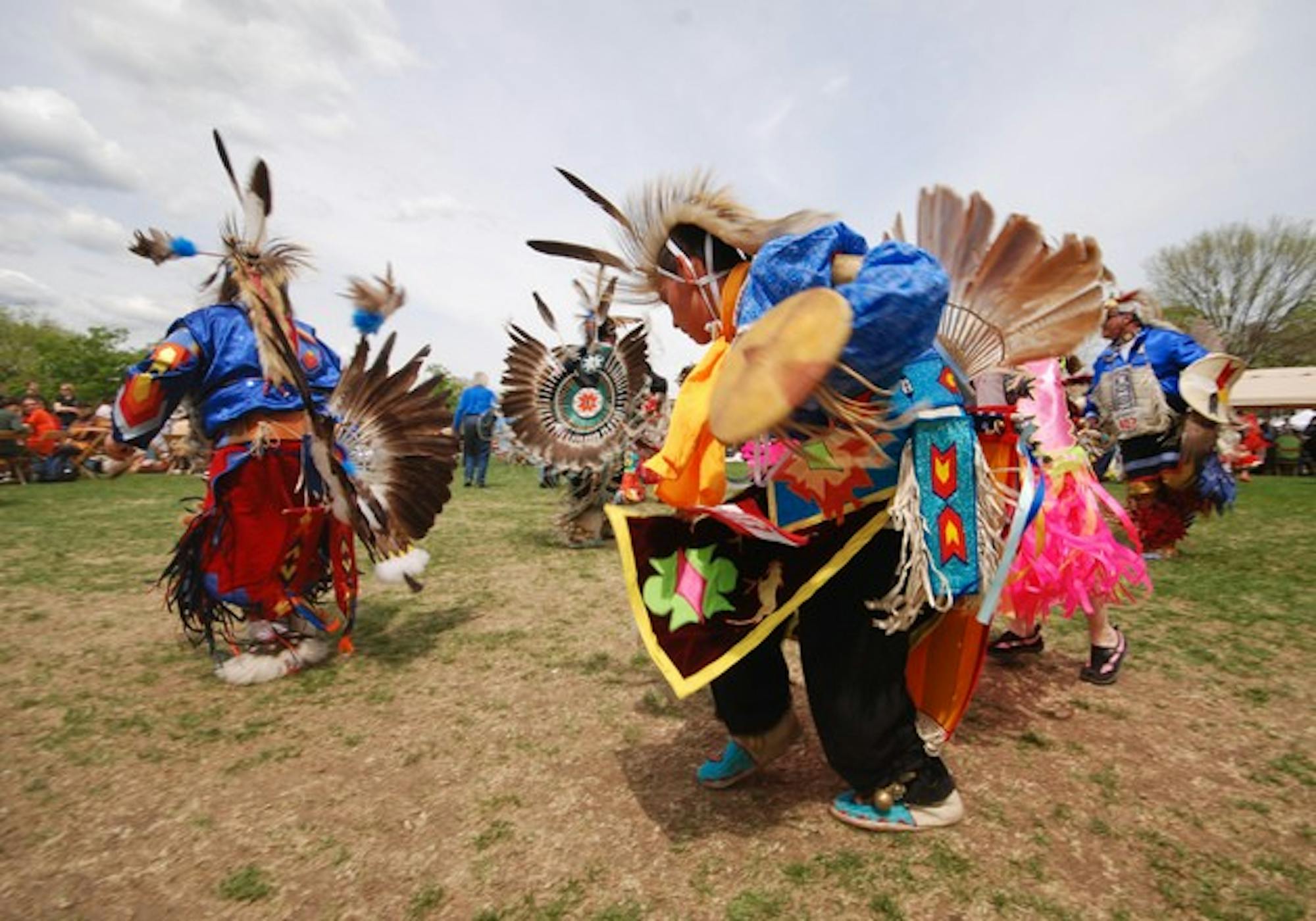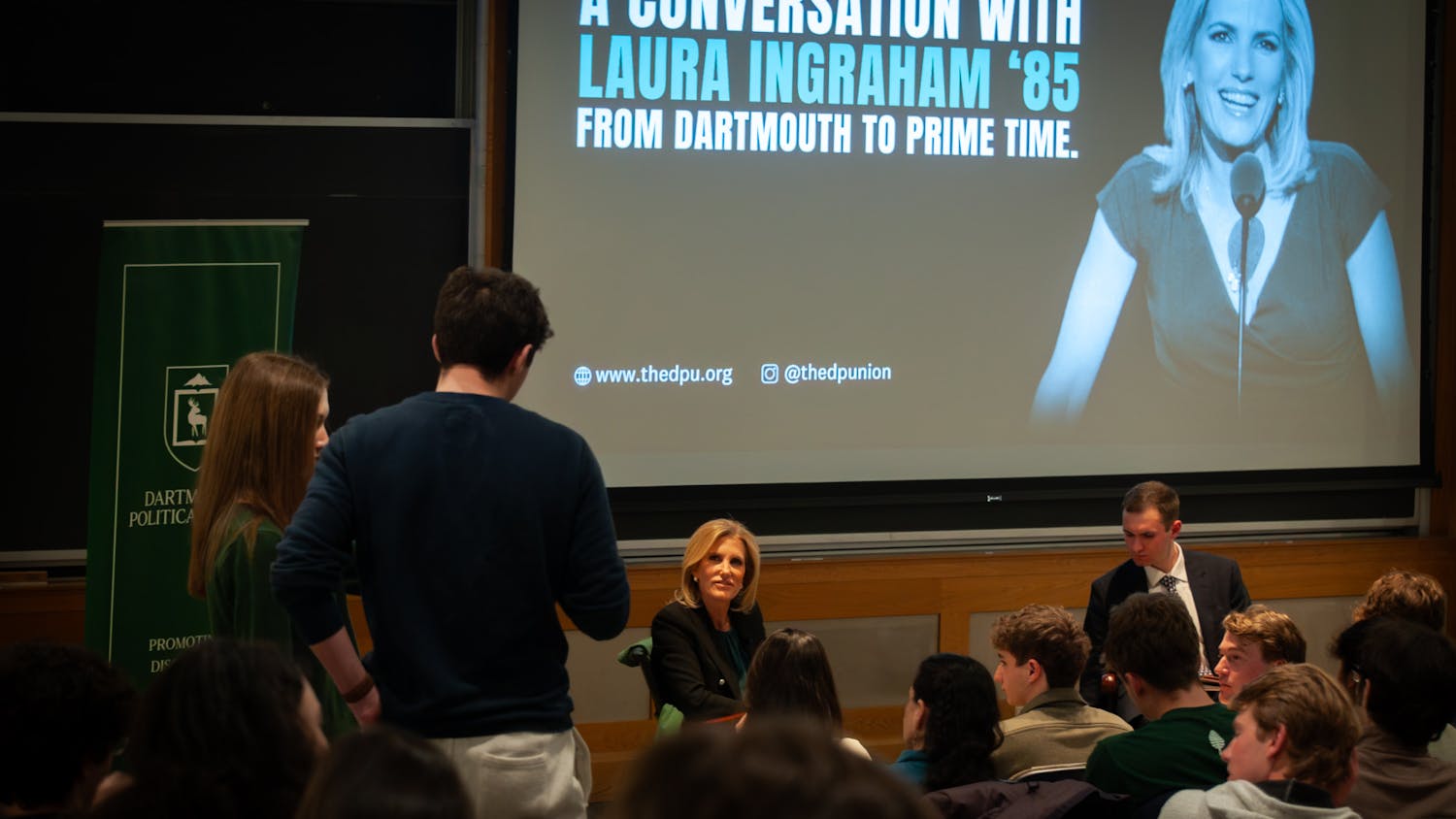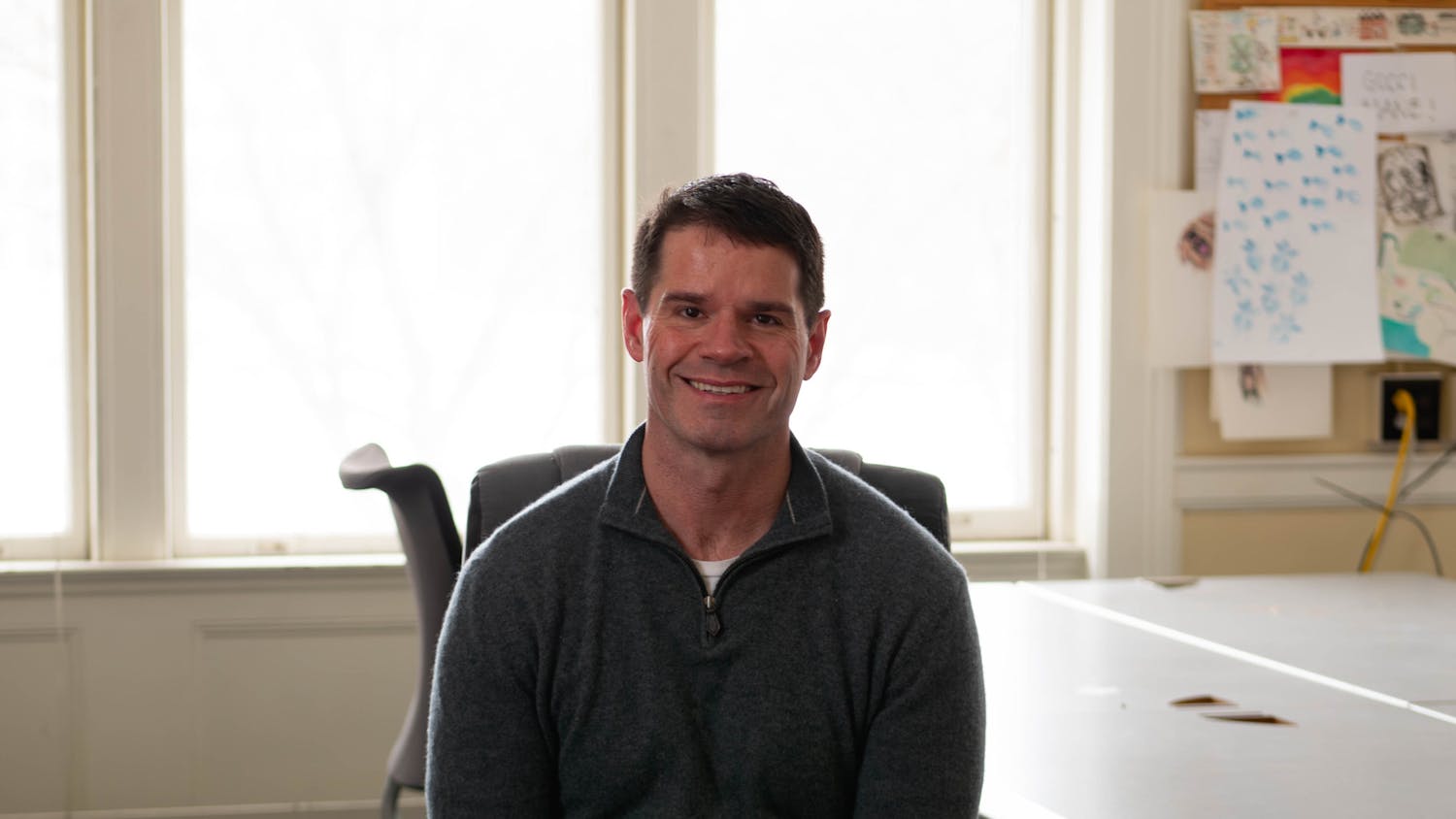The powwow is the "Native American people's way of meeting together to join in dancing, singing, visiting, renewing of old friendships and creation of new ones," according to materials distributed by Native Americans at Dartmouth.
This year's powwow, hosted by NAD, began with a "Grand Entry" on Saturday. Representatives from various tribes marched the eagle staff and various flags onto the Green and were followed by the event's dancers.
The Potato Dance -- in which partners place a potato between their foreheads and attempted to dance without dropping it for as long as possible-- was a highlight of Saturday's events.
Children gathered to listen to storytelling by Ralph Watah from Klamath Falls, Ore., and others strolled through the stands that lined the Green selling clothing, leather moccasins, beaded jewelry and other crafts.
NAD's food stand sold Indian tacos, chili stew, popcorn, cotton candy, snow cones and frybread drenched in honey and sugar, which was so popular the stand ran out of dough on Saturday.
NAD honored Uriel Barrera-Vasquez '98 and Will Martin '08 for their commitment, contribution, and friendship to Dartmouth's Native American community in a ceremony on Saturday afternoon.
"I will always be involved; many of the NADs are my family," Martin said in an interview with The Dartmouth. "I will never know what it's like to be a Native American, but I will know what it's like to have been accepted as a part of the native community here at Dartmouth, and that's more than I could have ever hoped for."
The event also featured several dance competitions for men and women.
A favorite among spectators was the women's jingle dance, named after the dress worn by the dancers.
"The jingle dress is known as the medicine dress," Clint Brown, Master of Ceremonies for the weekend, said. "These women are medicine ladies."
Jingle dresses are decorated with rolled-up snuff can lids that are hung with ribbon near each other to recreate the sound of rain when worn by dancers, Daryl Concha '11 said in an interview with The Dartmouth.
Concha, the head female dancer, wore a dress sewn by her mother, creatively modified with Campbell soup can lid jingles.
Concha, a member of the Taos Pueblo tribe, along with head male dancer Ronnie Goodeagle, Jr., from Wisconsin, were nominated by their peers and elected to lead the weekend's ceremonies, including many of the dances.
"In this celebration of life, we honor these two individuals who both shine in their respected areas, acting as role models for our respective kids," Brown said.
The pair also hosted their own "specials" on Sunday to honor their friends and families with songs and dances.
"It's tiring but a lot of fun," Concha said of her role. "It was an incredible honor, but I don't expect to be head woman again ... However, I definitely plan on being involved with the program for the remainder of my time here at Dartmouth."
Twenty-four graduating Native American students at the College and their friends were honored before the end of the ceremonies.




